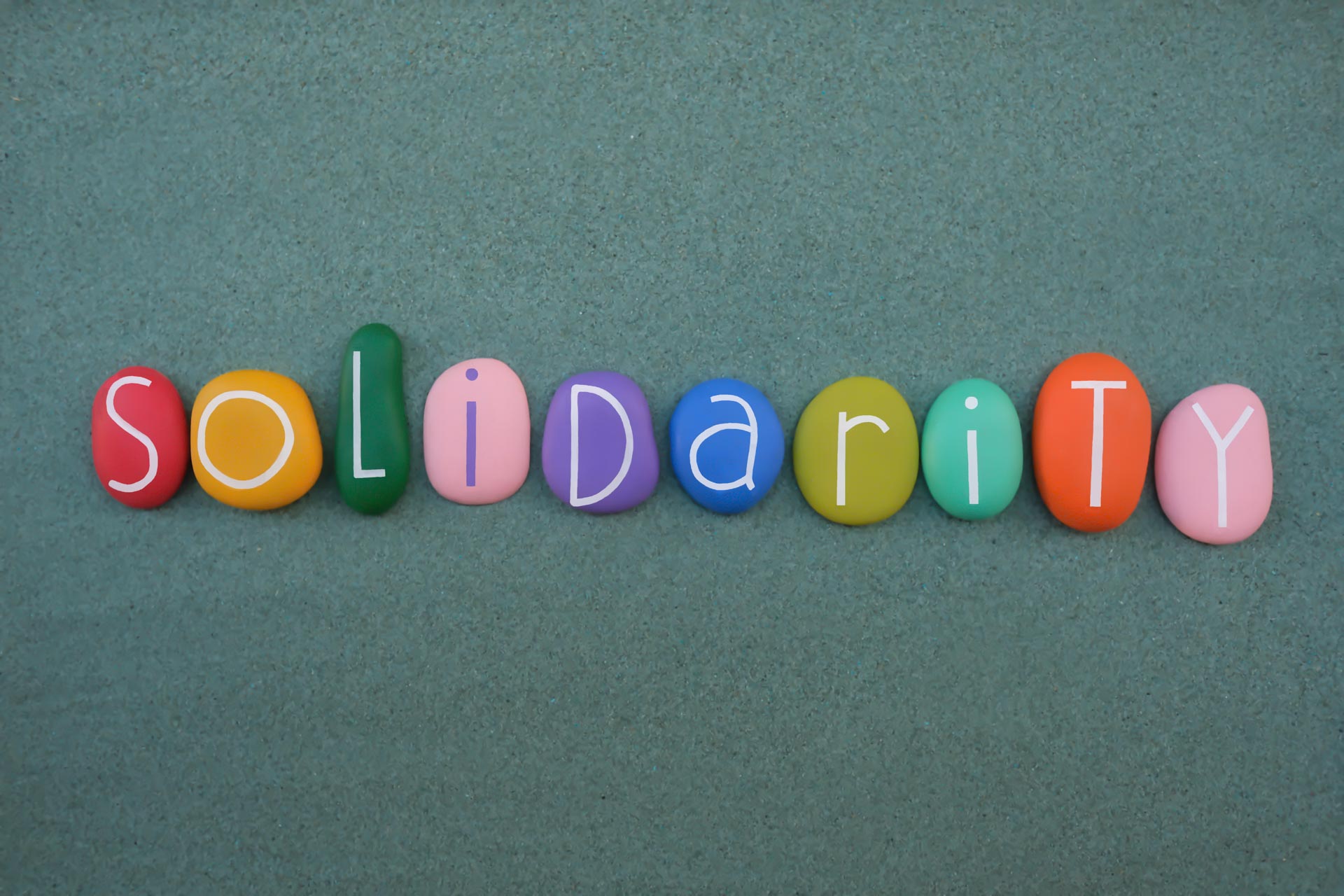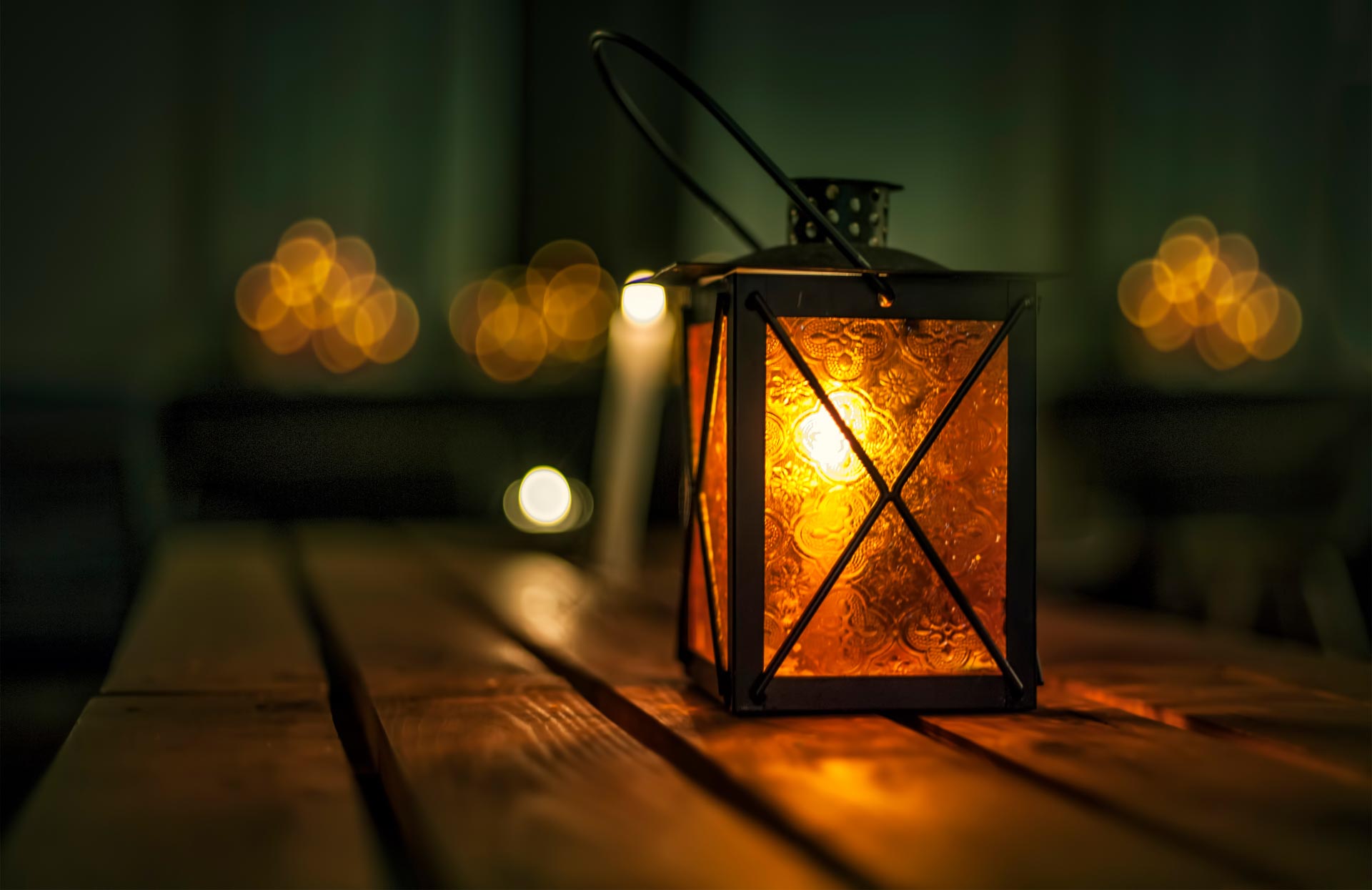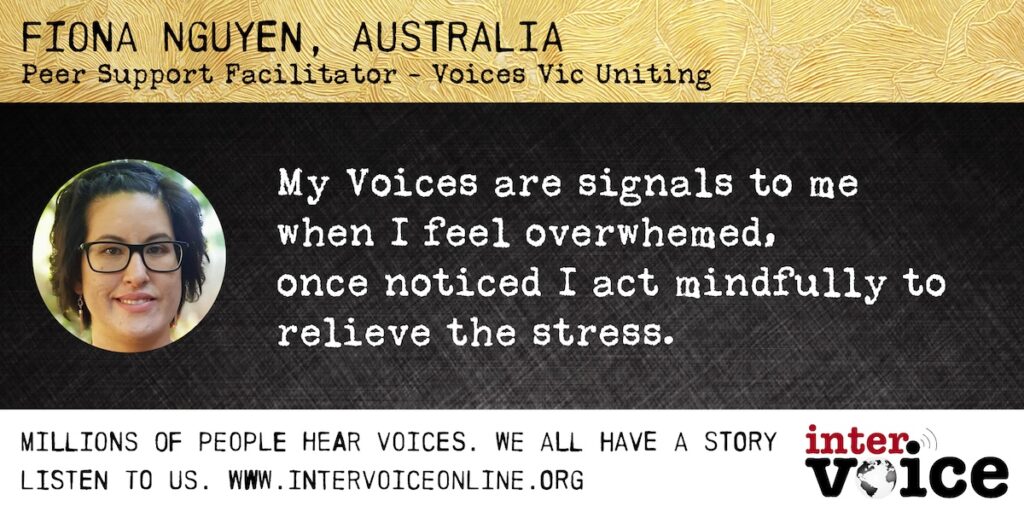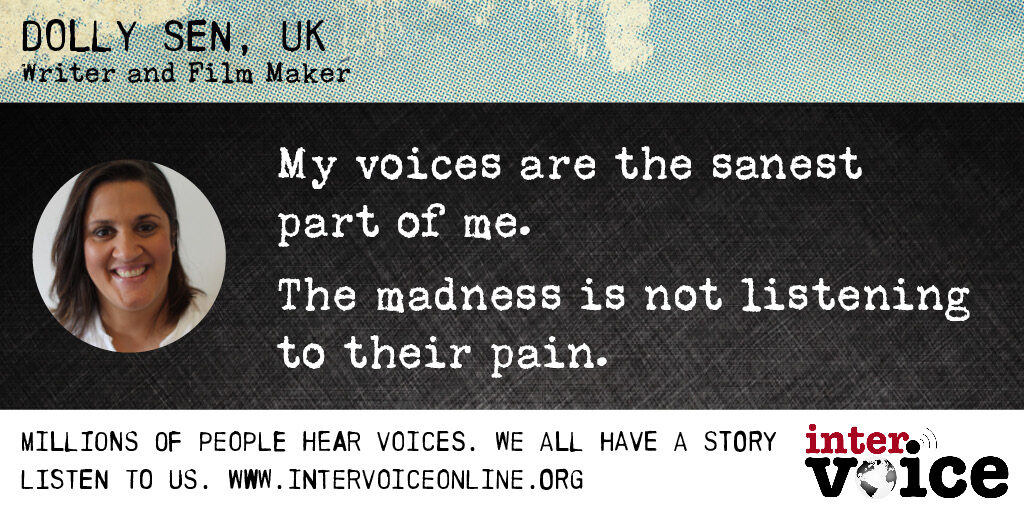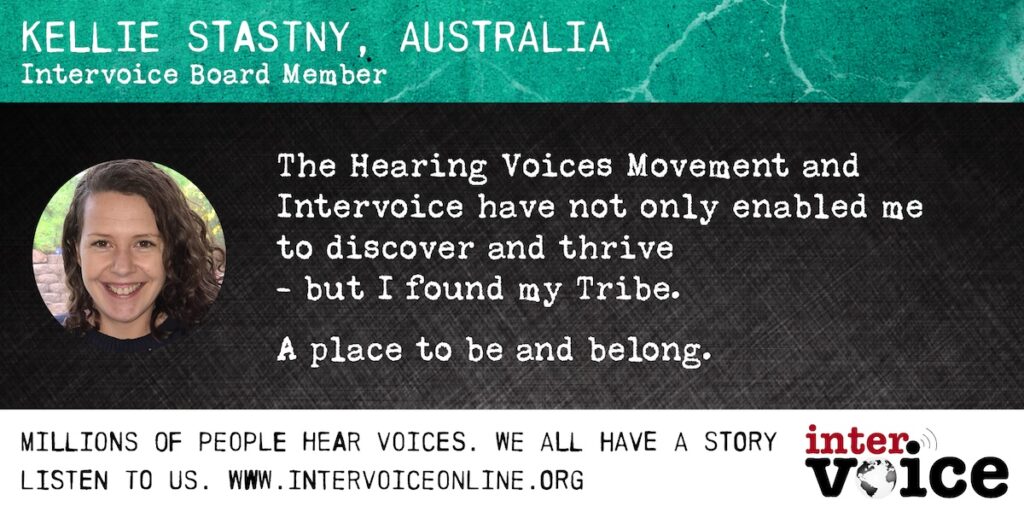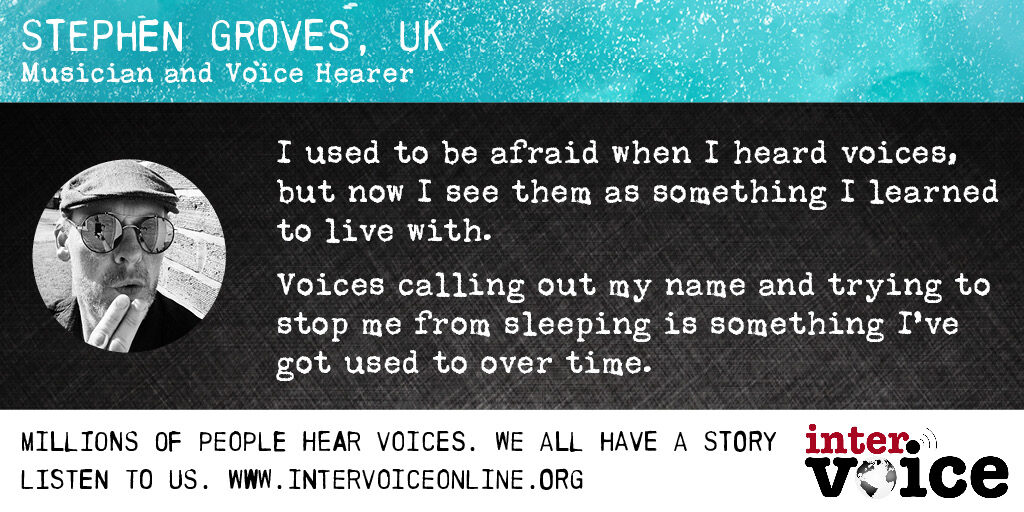Parallel Sessions: Day Two
Parallel Session 5: Spirituality and different belief systems
Carol Dugdale
“An introduction to astrology as a tool for self awareness in identifying the contradictory nature within our personalities”
The idea of this presentation was to teach us some basic astrology, but there were a couple of points where the subject of Hearing Voices was touched upon:
Carol happens to be a spiritualist and a medium. She mentioned how people often come to her with a strong positive wish to have the voice-hearing experience, and wanting to know how they can develop this. Carol is firm and clear about the need for any prospective medium to ask themselves: Why? She said there’s a need for ‘brutal’ self-awareness in case the person has any ‘unresolved issues’.
There was a strong emphasis, during the astrology lesson, on the idea of opposites. Where two planets stand in opposition (on opposite sides of the zodiac), she pointed out that this always entails a third position in the middle, where the person themselves can experience being torn between the two planetary influences. She compared this to being a person caught between two different ‘voices’.
Ivan Barry
“Oracles, dreams and footprints in the sand. What happens when we pay attention to signs and symbols that manifest in front of us as we travel this life?”
Ivan’s presentation hardly touched on hearing voices at all. He wanted to challenge us to think about questions such as:
- What are the boundaries between the rational and the irrational? Do they exist at all?
- What happens when we respond to the prompts, signs and symbols that manifest as we travel our lives?
- How much freedom/risk can we give ourselves in co-creating our realities?
These issues were vividly illustrated by the story of what had happened to him in Egypt when he had a powerful dream which turned out to be an authentic depiction of a Sufi festival. Following this dream, he chanced to meet a Jungian analyst in Egypt who took the dream seriously, and pointed him towards the new library of Alexandria (the Bibliotheca Alexandrina) where he chanced upon a painting which seemed an exact replica of one of the scenes in his dream.
The analyst had a mysterious intuition Ivan should get a bus into the Sinai desert and climb Mount Sinai, but Ivan missed his bus, twice, and took this as a sign to travel instead to the Siwa oasis on the Libyan border (a community of Berbers with their own distinct history and culture), which he did. Ivan had a wealth of anecdotes and photos from Siwa which were very entertaining.
Parallel Session 6: Hearing Voices Research
Summer Schrader
“International perspectives on voice hearing research.”
The biomedical model is more dominant in America than in the UK. In the US, Voices tend not to be considered as important because they are seen as a symptom of schizophrenia, a biological disease that must be treated with medication. In contrast, in the UK treatment such as CBT is gaining more respect and therefore there are more likely to be articles published about voices. There is nothing equivalent to the Wellcome Trust in America. The anti-psychiatry movement is stronger in the UK, as is the Hearing Voices movement and this may have influenced clinicians and researchers. Summer is about to undertake a research project to find out if America really is producing less research on voice hearing than other countries.
Angela Woods & Charles Fernyhough
“Hearing the Voice”
Angela and Charles are working on a multi-disciplinary project at Durham University (UK) that is funded by the Wellcome Trust. It involves input from academics across the humanities spectrum as well as voice hearers, service users and other experts by experience. One of their objectives is to try to understand what is the underlying difference between distressing voices and happy voices. The project will involve phenomenology, cognitive neuroscience, hermeneutics and therapeutic practice. Sandra Escher, Marius Romme and Gail Hornstein have worked with the team to develop the project. More information can be found at: www.hearingthevoice.org.
Eleanor Cross
“I must be a beast, an absolute beast, to be on a section: schizophrenia, identity and normality”
This project takes a critical stance on the current approach to schizophrenia when it involves the removal of personal liberty under the auspices of the 1983 Mental Health Act . How can compulsory detention fit with the principle of liberty enshrined in the 1998 Human Rights Act? There are moral, if not legal, objections. The Mental Health Act assumes a medical model of “mental disorder” and the power of compulsory detention it carries assumes a causal link between mental health and dangerousness. This is itself a dangerous and irrational assumption.
Marcello Macario & Raffaella Pocobello
“The Italian Voice Hearers Movement: networking and research outcomes.”
The Italian Voice Hearers movement has developed has grown remarkably in the last five years despite the economic recession and the groups are now promoted by community mental health services. The network has also translated into Italian books about voice hearing and hosted the Congress in Savona last year.
The research committee is an inter-disciplinary team of academic scientists, user researchers, professionals and, being Italian, includes a mother! The research is looking to construct a model of the recovery process and it involves two main elements:
- what does recovery mean to voice hearers?
- what does involvement in the hearing voices movement mean for the individual’s recovery process?
One hoped for outcome is that there will be knowledge transfer that will enable the implementation of recovery oriented mental health services and that will teach recovery to the next generation.
Maria Haarmans & Filippo Varese
“Links between trauma, dissociation and voices: evidence from quantitive and qualitative studies of the Liverpool Psychosis Research Team”
This presentation focused on a synthesis of two investigations looking at the links between trauma, dissociation and voices. Findings show that sex and gender impact on the dynamic of voice hearing. The relationship that people have with their voices often relates to their life history as does power/subordination in their relationships. It is important to make a distinction between sex (biological characteristics) and gender (a social construct where the traits of male/female are learned) and how they interact with other diversity indicators and early adversity or trauma to understand the impact on someone’s voice hearing experience.
Parallel Session 7: Young people and hearing voices
Claire Chapman
“Working with young people throughout their journeys to self defined recovery”
Claire works in an early intervention service in North eastern England and talked about their arts programme, including a graffiti project in a public underpass, and joint art programmes in schools to help change attitudes to mental health. Young people and their families say they appreciate this approach which “thinks outside the box” and helps to make them feel that they are people rather than symptoms.
Claire stressed the importance of staff being open and taking part, and starting with small things like transport and food to help engage young people.
Claire Powell and Yan Weaver
“Working with young people who hear voices to challenge stigma”
Voice Collective is a London-based project to support children and young people who hear voices, and their families. Stigma and bullying at school are some of the challenges these young people face and the Voice Collective team has developed a range of strategies to address these issues that include “Get your voice heard” workshops. The team also runs training courses to raise teachers’ awareness. Some of the young people have recently produced a short anti-stigma animation.
Ros Thomas & Sarah Sewell
“Working with voices: reframing, reconnecting, recovering”
After being trained in the Hearing Voices approach, Ros described how it had been applied in the Young People’s Discovery Programme in Western Australia. There was also a practical demonstration of voice dialogue that was very moving and thought provoking.
Parallel Session 8: Peer Support and Self help
Indigo Daya
“Individual peer support programme: merging the hearing voices approach with intentional peer support”
A new, innovative recovery programme for individual voice hearers is about to be launched in Melbourne, Australia. The programme has trained two voice hearers as peer workers and another as a peer researcher. It aims to bring in ideas from Intentional Peer Support with the hope of creating a more participatory recovery dynamic. The project is being run as a single-blind randomised control trial in conjunction with the Monash Alfred Psychiatry Research Centre that hopefully will help to strengthen the profile of voice hearing work.
Catherine Whitaker
“I leave my voices in my cell on Fridays: Hearing Voices Groups in prisons: Hearing Voices Prisons Project, England”
This presentation shared the journey of a pilot project set up in London prisons and secure mental health units in 2011. It has been exciting and challenging. Initially, prison staff were cynical about people’s potential to engage in peer support within prisons, but several successful groups have been created.
Topics covered the challenge of convincing prison staff; changing the prevailing culture; managing staff anxieties and creating safe groups in unsafe places. The presentation also discussed topics such as working with feelings of anger, hopelessness, loss and guilt.
Nicky Forsythe
“Talk for health: therapy without therapists”
This programme is a new approach to mental health which focuses on teaching people how to talk and listen in a therapeutic way. The programme was developed by Psychotherapist and researcher, Nicky Forsythe who has been researching the boundaries between therapy, therapeutic talk and everyday chat. It is an extraordinarily effective method that doesn’t rely on professionals or sophisticated techniques.
Zanell Neethling
“Mixing Music and coping with voices”
Zanell described this as “the best coping strategy I have ever experienced for hearing voices”. He described how mixing music brings huge benefits – you have to concentrate on listening to the music, counting beats and mixing the sounds together to make a smooth ‘set’. The volume can help to drown out the voices, and if it isn’t always successful, you at least will be creating some good music.
Workshop one: Coming off psychiatric medications and harm reduction approach (Will Hall)
This workshop looked at a very sensitive topic which is almost taboo, but it was based on eight years experience that resulted in the publication “Harm Reduction Guide to Coming Off Psychiatric Drugs” (published by the Icarus Project and Freedom Centre)
It is best approached by collaborative working. Topics considered were:
- How does medication work?
- What is best use?
- How do we balance risks and benefits?
- What are the basic guidelines for reducing and withdrawing?
Workshop two: Working with male survivors of sexual abuse (Jim Campbell and Ron Coleman)
The two presenters have recently published a book “Reclaiming our lives: a workbook for males who have experienced sexual abuse.” The workshop created a space for the presenters and others to share their stories. It also featured techniques that help people to recover.
Download the full report:
2012 World Congress Report (PDF)
2012 World Congress Report (Word)


